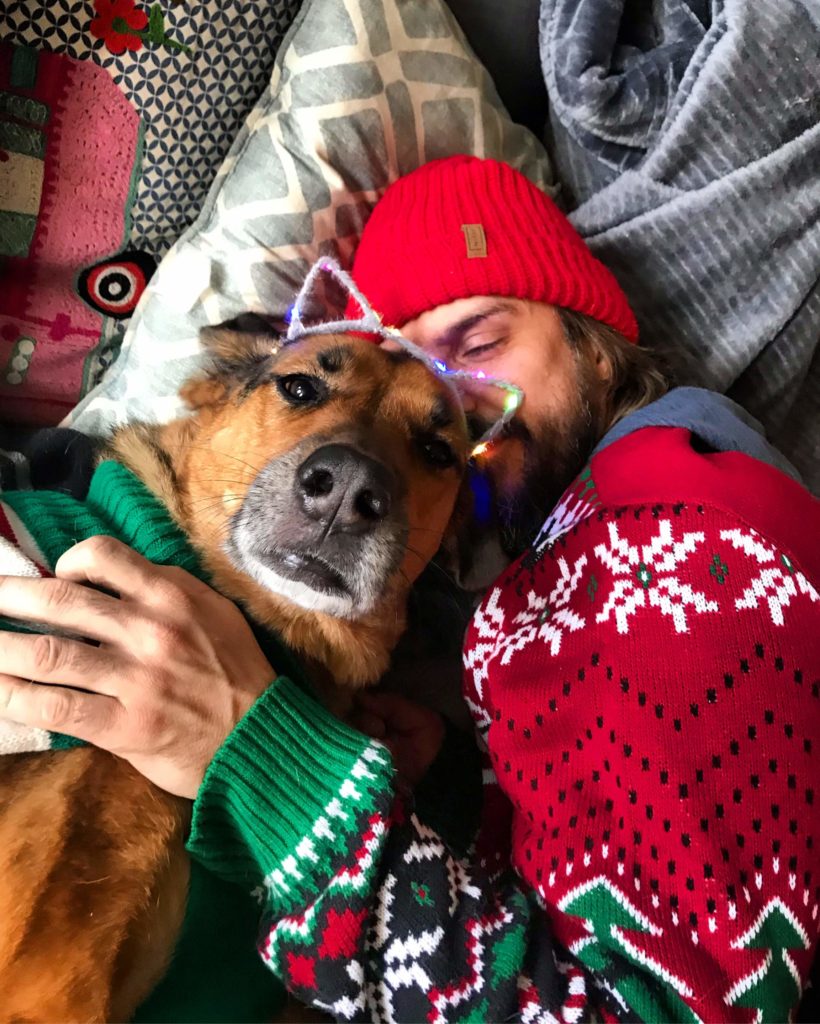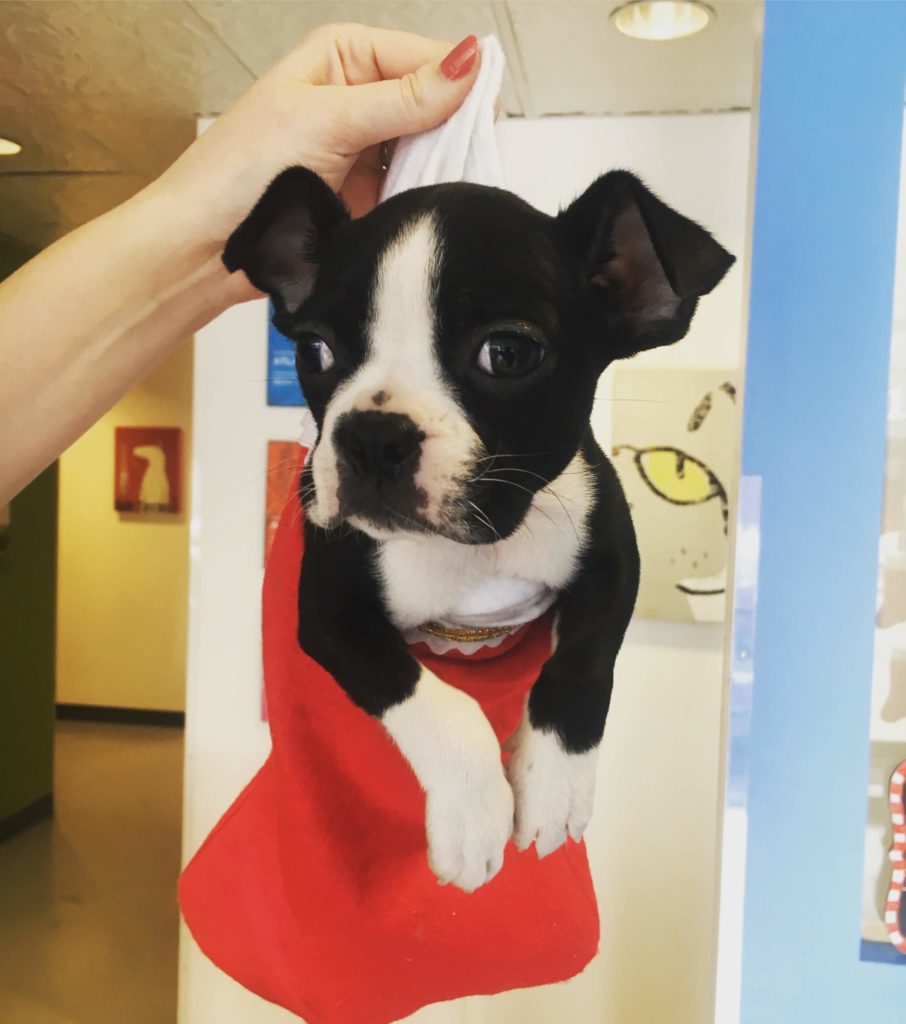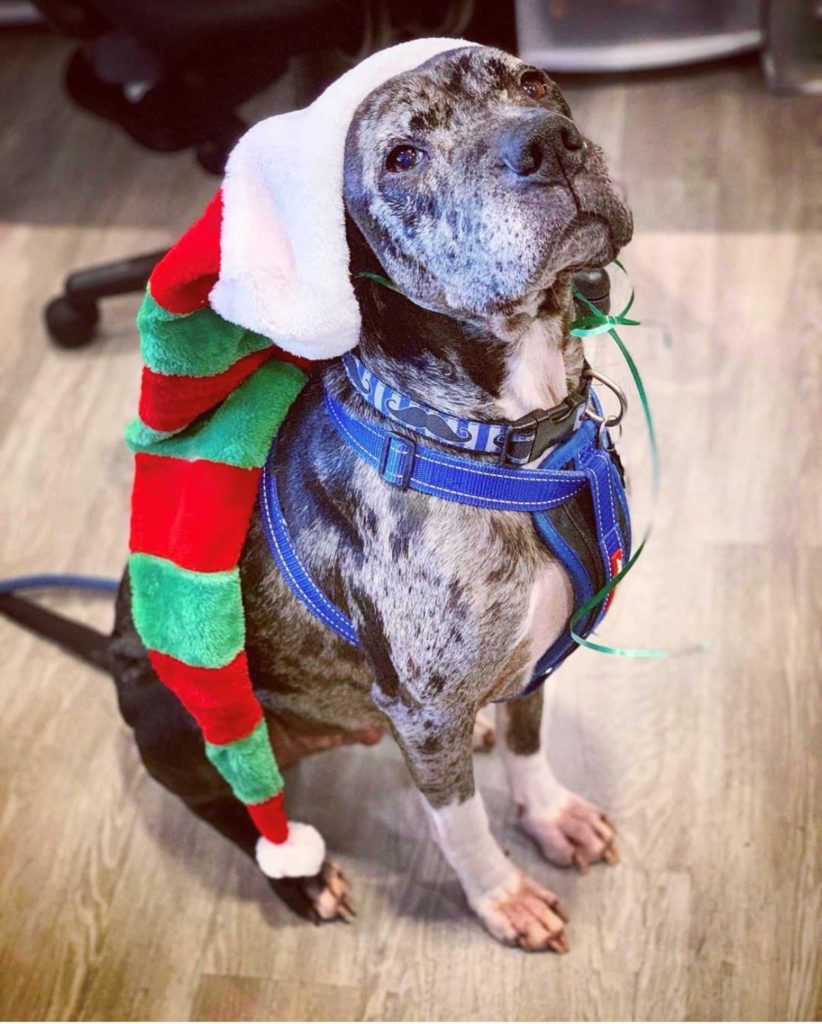Monthly Doctor’s Blog: Pet Related Holiday Tips!

Every month, the doctors of AtlasVet write a blog post to help pet owners with common questions
This month, Dr. Chris Miller discusses Holiday Pro Tips From Your Veterinarian!
Whether you are celebrating Christmas, Hanukkah or Kwanzaa, it is never too early to plan for the winter holidays. In this article, we will check the house for hazards, plan for the in-laws’ arrival, make our decorations pet-safe and have a plan for an emergency.
How do I Avoid Gastrointestinal Problems?
Every winter the AtlasVet switchboards are lit up with frantic owners calling to get their pets treated for vomiting and diarrhea. Many of these cases can be avoided with a little prevention.
Don’t leave food unattended and make sure any guests are reminded of this rule, unless you want a replay of the Bumpus Hounds destroying the Christmas Turkey.
Be sure to secure any trash cans that may contain delicious carvings or discarded food.
Don’t feed your dog human food since giving your pet any new food could cause an upset stomach. Spicy or fatty foods could cause more serious problems like pancreatitis.
Any Party Tips?
One of my favorite ways to celebrate the holidays is with a house party (preferably with terrible sweaters). However, we often forget to make plans for our cats and dogs during this time. If you’re having a big party, then boarding your pets is a good idea (see below). If your pets are going to stick around for the festivities make sure you create a safe room or isolated floor of your house reserved for your pets so that they aren’t overly exposed to loud noises, unattended food and drink, unruly guests and open doors that lead out into the cold winter night (also microchip your pet!).
What Are Know Common Toxins?
Poinsettias, mistletoe, pine needles and holly are all well known to be mildly toxic, but overall are pretty low risk and usually only cause mild oral irritation or upset stomach. Regardless, It is a good idea to keep these items out of reach of pets. Many varieties of lilies are deadly and can cause kidney failure in cats. I would not keep these flowers in the house (ever) if you have a feline. Chocolate gets a bad rap as a toxin, but milk chocolate is mostly harmless. Dark chocolate and baking cocoa however can cause significant gastrointestinal problems and cardiovascular effects if eaten by pets. Be vigilant and keep your pets away from these toxins!
Are Christmas Trees Bad For Pets?
Your pets will find that Christmas trees are irresistible and mysterious additions to the house. It is for this reason that you should consider barricading off the tree in a dedicated room or with a gate. If this isn’t possible, don’t decorate the bottom portion of the tree that is most accessible to your pets. Live Christmas trees are often sprayed with insecticides and these chemicals can find their way into the water. If you have a real tree, keep your pets away from the water by covering the opening of the tree stand with foil or by considering getting a pet-safe tree stand. Also, keep electrical wires to the tree, minora or other decorations hidden. Finally, wait to place presents under the tree, especially those with tantalizing ribbon or string, until Christmas Day.
NYE Fireworks Prep?
If your pet is fearful of loud noises, then having a plan for New Years fireworks is a must. Create a centralized safe spot in your place for your pet that is as insulated from the noise as possible. Consider playing some white noise or classical music and if your pet is particularly scared, ask your vet for possible anti-anxiety medication or sedatives. Be sure to call well in advance of the holiday so that you beat the last minute rush!
Boarding & Travel
If you plan on boarding your pet, make arrangements ASAP since many facilities in the DMV will fill up quickly! Many facilities charge a premium for certain days around the holidays. If your pet has never been to a boarding facility it is always a good idea to ask to visit the accommodations in person to make sure the facility is up to your standards. Some places may require a trial visit to make sure your pet is a good fit with the other dogs/cats. Also, many facilities require certain vaccinations in order to board. These are usually rabies, bordetella and/or canine influenza. Make sure to know what vaccines are needed at the facility you choose and that your pet is adequately vaccinated before dropping off. If you are traveling with your pet nationally by air, make sure to check if the airline requires a health certificate from your veterinarian. If you are traveling internationally, you will need official paperwork (International Health Certificate) from your vet and the USDA. These can be complicated processes and should be started immediately if you are planning on flying in the next couple months.
Emergency Plan
Have a list of local 24-hour emergency veterinary facilities handy and let everyone in the house know where this list is located. AtlasVet has these listed on our website under “emergencies”!



